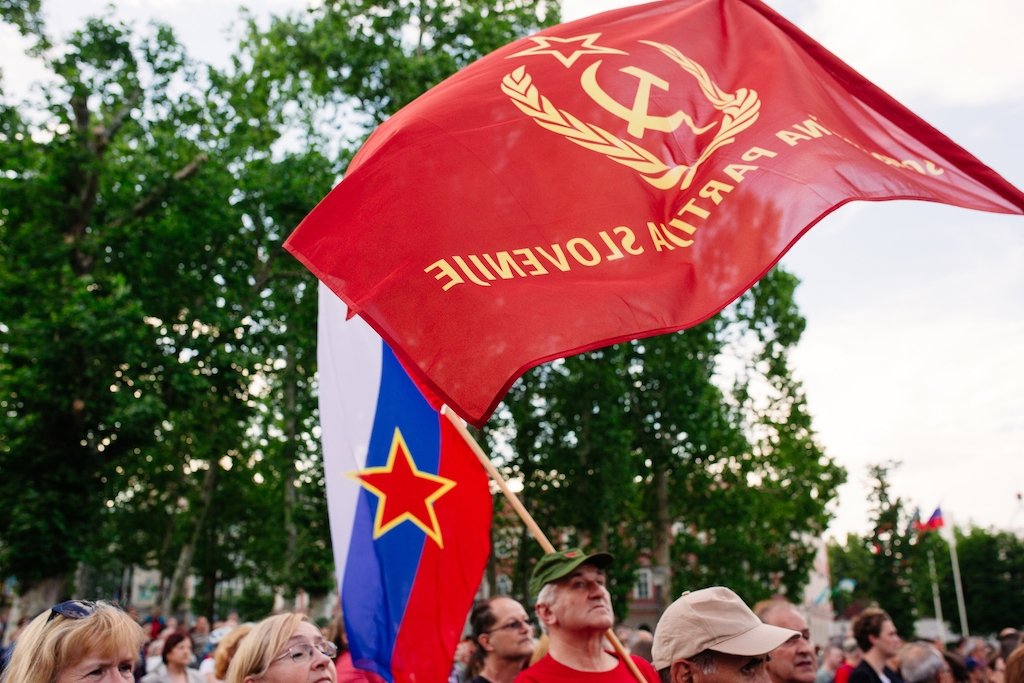(Published on April 14, 2020)
by P.T.
In response to criticism of the pressure on journalists in Slovenia, the Slovenian government (more specifically, the Government Communication Office of the Republic of Slovenia – UKOM) sent a letter to the Council of Europe stating, among other things, that most media in Slovenia originate from the communist regime. The letter reads, that the government is pleased, that Slovenia has finally become an object of international interest when it comes to media freedom. The response from late March relates to a publication on the Council of Europe’s Platform for the Promotion of the Protection of Journalism and the Security of Journalists.
In a letter to the Council of Europe, the Slovenian Government (more specifically, the Government Communication Office of the Republic of Slovenia – UKOM) stressed that the attention of the Council of Europe should be focused on the broader context of the media situation in Slovenia, this also including “historical facts about the development of the media market in Slovenia”.
The letter says: “Most of the most important media comes from the former communist regime. Even in the late 1990s, some former members of the notorious Udba secret police occupied the major editorial positions. “It adds that until 2004 the public service broadcaster Slovenia (RTVS) was” run by former communist structures”.
Almost all projects, that were not part of the totalitarian past, collapsed
In a letter, the government points out that all attempts to create new media that would not be based on the heritage of the totalitarian past have failed, since they did not receive any advertising revenue and the only survivor was religious radio “Ognjišče” because people supported it, with their own contributions.
The situation partly changed in years between 2004 and 2008 – this is the period of the first government of Janez Janša, when “in some media, funded by all citizens, individuals who were not affiliated with the previous totalitarian party, took the lead.”
Under Pahor’s government, media consolidation has taken place, with the help of Forum 21 tycoons
But already in 2008, when the government was taken over by Borut Pahor, “there was tremendous pressure on all editors and journalists, who were not part of the previous regime network.” The government (more specifically, the Government Communication Office of the Republic of Slovenia – UKOM) mentioned also the STA and RTVS in a letter, adding that similar actions had taken place in the media with private owners, in which critical editors were quickly removed from their leading positions.
In the meantime, according to the letter, there were also media ownership consolidations, most of which were sold to individuals, known to the Slovene public as tycoons, many of them being members of Forum 21 and all of this with the consent of the leftist governments.
The government also points out, that it has not been uncommon for some politicians to be politically rewarded by some journalists, known as the biggest fighters against parties, who have not left the former regime and also mentions some cases of journalists, who have gone from journalism to politics, quotes out MEPs Tanja Fajon and Irena Joveva.
The letter states, that in light of all this, the Slovenian Government (more specifically, the Government Communication Office of the Republic of Slovenia – UKOM) is satisfied, that Slovenia has finally become an object of international interest also when it comes to media freedom.
They also warned of a major spill on RTVS, which “has employed 400 people in the last ten years, when other media were struggling to survive and were even dismissing journalists.” The letter, first reported today by the portal “Necenzurirano”, was forwarded to the Council of Europe on Tuesday, by the Permanent Representation of Slovenia, to the Council of Europe in Strasbourg and it is also available in its entirety on the organization’s website.

